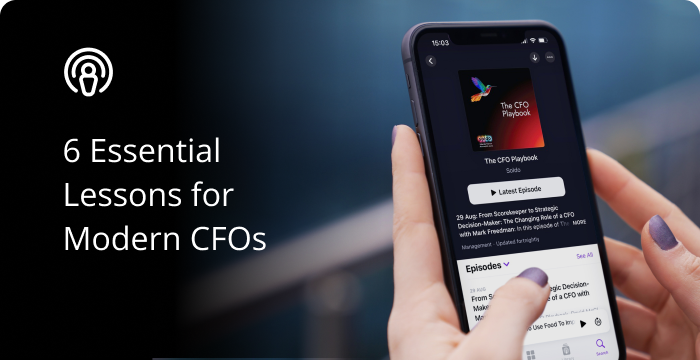There’s a workplace revolution happening from our homes. At the end of 2021, half of British workers were at least partially working from home – and most would be happy to continue doing so in the future.
The pandemic has inspired employees everywhere to prioritise work-life balance and find jobs that suit their lifestyle better. For employers, this has led to additional competition acquiring and retaining the best talent.
Hybrid working, the model in which people split their work hours between an office and remote working, has become so important that people are leaving their current jobs for hybrid opportunities.
Here are some of the benefits of this ‘new normal’, for both employers and employees:
- Increased productivity
- Reduced stress and sickness levels
- Reduced commuting and consequent environmental benefits
- Freedom to work from different geographic locations
It’s the biggest change to our working ways in decades. And when done right, it gives everyone the best of both worlds. When not done right, it becomes a challenge.
A few of the challenges hybrid working can create include:
- Difficulty managing employees and fostering morale, team culture, and relationships
- Trickier communication and collaboration without face-to-face contact
- Increased feelings of loneliness and isolation
- Higher risk of burnout if working hours bleed into evenings and weekends
Sidestepping these issues should be a priority for businesses today.
Businesses have an opportunity to reform current models to better accommodate individual roles and preferences, expanding their employee pool geographically – all while saving on office costs.
But first, they need to know what it takes to attract and keep the best people around.
Attracting top talent in the age of COVID
COVID-19 has brought forward a lot of change over the course of two years, including the shift to a candidate-led market. More than ever, it’s now up to the best professionals to consider where to go next based on the employee experience offered to them.
In 2021, the term ‘The Great Resignation’ spread across the media like wildfire.
We learned that 24% of UK employees were looking to change jobs in the following three to six months(!) – and they’re looking for much more than a good salary.
Job seekers and current employees now expect generous wellbeing support, more individual and career growth opportunities, better tools, and harmony with their home life.
But offering these benefits will be complicated for companies already managing:
- Multiple teams and budgets across different functions and divisions
- Various currencies for different European offices
- Different spend needs and permissions for people and projects
So, how can companies tackle these challenges, invest in employee experience, compete for talent – and retain it?
First, five crucial steps:
- Nurture their wellbeing: address burnout head-on with a robust health package – wellness days, online therapy, gym access. Practice regular check-ins and establish healthy boundaries to keep home and work hours separate.
- Bring them together: gather teams, in person and remotely, to celebrate successes and socialise through group activities such as book clubs or volunteering.
- Give them the right tools: raise productivity with great equipment and workspaces, collaboration platforms, and technology that helps people focus on their jobs.
- Support their growth: create a culture of learning through development opportunities such as mentoring, online training, and webinars.
- Unlock seamless travel: offer flexible and sustainable options, such as AirBnB accommodation, the ability to change bookings (to extend trips and enjoy it as a tourist), virtual wallet systems, and easy payment methods.
These actions and resources will pay for themselves in the end, by reducing the number of days lost to illness, injury, and poor mental health, and by improving performance and employee retention.
Let’s explore how we address these steps at Soldo with the help of our own spend management solution.
How we empower employees at Soldo
As a fast-growing company, we’ve had to find ways to boost our own team’s wellbeing and job satisfaction, so we could continue to grow and retain the best possible talent.
But we didn’t have to look very far; using Soldo has made life easier for the people who work at Soldo!
We’ve become the best users of the product and services we offer to other companies. It’s only fair that we make the most of it to support our own people.
Our spend management platform and prepaid cards make it easy, within the hybrid working model, for employees to get what they need to do their jobs.
How does one spending solution contribute to job satisfaction?
Our comprehensive platform and mobile app enable our teams to make spend requests, purchases, capture receipts and keep track of budgets – without the soul-crushing admin.
We’ve also accelerated employee development with Soldo virtual cards, for instance. They’re ideal for one-off online payments, such as courses or conference tickets.
‘At Soldo, we encourage people to be proactive and take up opportunities to build skills and grow. It’s why we created the development fund – to make this as accessible as possible and to motivate people to find opportunities to sharpen their skillset.’ Marie Degritot, HR Business Partner at Soldo
By fast-tracking this process, we empower individuals to take ownership of their personal development. With set spend limits on each card, they can request and make development purchases in minutes, and capture receipts instantly.
It also empowers the finance side.
Regardless of the number of budgets, individuals, teams or departments, our finance team can see every single purchase, wherever they happen.
With Soldo, finance gets an automated system to track, manage, and export employee expenses. They have a complete picture of everything that’s being spent on development, in real time, through the Soldo web console.
‘At Soldo we leverage all the features that our product has to offer. From organising funds in multiple currencies and setting spend limits, to making unique payments with our single-use virtual cards and managing repeat payments like subscriptions and online ads.’ Andrei Gavriluta, Finance Manager at Soldo
Full visibility and control – and a happier team.
Fast-tracking collaboration with team and project cards
Using our spend management solution has allowed us to speed up processes and avoid several inefficiencies – which gives us great competitive advantage.
And for our teams that have adopted agile or sprint working, simple and quick payment approvals help them forge ahead.
Here are some common issues we’ve been able to escape with automation:
- Being able to make urgent purchases, as quickly as possible
- Chasing and keeping track of receipts
- Spending hours filling out forms and spend reports
- Employees getting frustrated with the admin and paperwork
- Not enough control and visibility for teams over their own expenses
With the tools available to us on the go, no one needs to waste time on tedious tasks, and our finance team can simply set spend limits on cards and automate top-ups so there’s no risk of teams overspending or running out of money.
Everyone at Soldo has their own card, including different cards for teams, and cards for special projects. We mirror our own organisational structure within the platform by delegating budget management to different team leaders.
Teams have more accountability over company spending, without any possible downsides for the company, which increases trust and gives everyone the confidence to spend responsibly.
Collaborating and keeping budgets sorted is easier than ever.
Offering a better employee experience from the start
As the world embraces hybrid working and recruitment numbers rise, creating a successful onboarding experience has become an even more pressing concern.
The first steps employees take after joining sets the tone of their journey with the company. (As the saying goes, ‘You don’t get a second chance to make a first impression.’)
Our experience at Soldo tells us that a strong onboarding journey helps to:
- Understand the company culture and how to immerse in it
- Get detailed knowledge of the company’s mission and goals (and how the new hires will contribute to them)
- Grasp the necessary different systems, processes, and structures within the business
- Discover what the company can do for the new hires (e.g., tools available to them, career development opportunities)
It’s important to start simple. When welcoming someone new, making sure they have the right equipment to do their job is number one.
A new joiner might be disappointed if there are delays with computer and system set-ups when they start. They shouldn’t have to wait days to get access to a piece of software that helps them, for example.
Which is why Soldo employees get a company card on day one. When we give someone a card, we’re not just saying that they’ll never be out of pocket, and that they don’t need to worry about reimbursements.
We’re telling new starters that they are a valued member of the team, and that we trust them. And that we want them to have what they need, as quickly as possible.
Job perks are so much more than good insurance or company trips. Empowering employees, reassuring them, making sure the ball keeps rolling – it’s a warm welcome they remember.
Supporting development with easy approvals and less admin
Any employee will agree that work practises involving lots of admin work are counterproductive. Yet companies have trouble finding a way around them.
This is especially true for payment approval processes; it can be challenging for new joiners to know who to contact, what forms they need to fill out, and how long it will take for their request to be approved.
Traditionally, when a payment request was made, there was no way to keep track of it other than by chasing it by phone or email.
At Soldo, we use the Purchases feature to streamline this process: our finance team can define approval workflows, authorise one-time spend requests, and issue one-off virtual cards in seconds.
Employee purchase requests get sent to the right ‘approver’, in the right sequence, at the right time – automatically. And staff can keep track of what they spend by checking their mobile app!
So, for instance, a person can find a training course they’d like to attend, send over a request in a few taps, and get approval and a virtual card quickly after, preloaded with the payment amount.
They can then forward the digital receipt with all the expense information needed, and be done with it. No more crushing admin. No need for reimbursements. And a better spend journey for everyone:
- A real-time picture of requests, approvals, and payments for approvers
- Easy receipt capture and upload
- Saved time and effort, increasing efficiency
- Safer payments using single-use virtual cards for specific purchases and amounts
- Access to the company’s expense policy before submitting a request
’The requests feature gives our People team great insights into what people need in terms of development, which also allows us to build into the Soldo plans at company level.’ Marie Degritot, HR Business Partner at Soldo
Employees can take more charge of their own development without it being a hassle for multiple people. A morale booster all around.
Building a brighter future
Soldo’s Seeding the Superbloom research found that 73% of the businesses we surveyed are planning to recruit in 2022.
It’s the perfect time to embrace hybrid working responsibly, with full consideration for employee wellbeing.
Plenty of businesses, including Soldo, are seeing how the right practises and tools can help make people comfortable at work, take away unnecessary pains, and offer more flexibility. Which, combined, result in soaring productivity levels and happier lives.
But this recent shift in priorities for so many potential candidates is also an opportunity for businesses – and the world.
Less commuting is better for the environment and for employees’ personal life. And if half the team is at home most of the time, there’s a chance to reduce office space and minimise rent costs for the company.
We can have it all.
We’ve presented this topic at ‘The Future of Expense Management’ virtual summit. You can watch a recording of the talk on demand.











